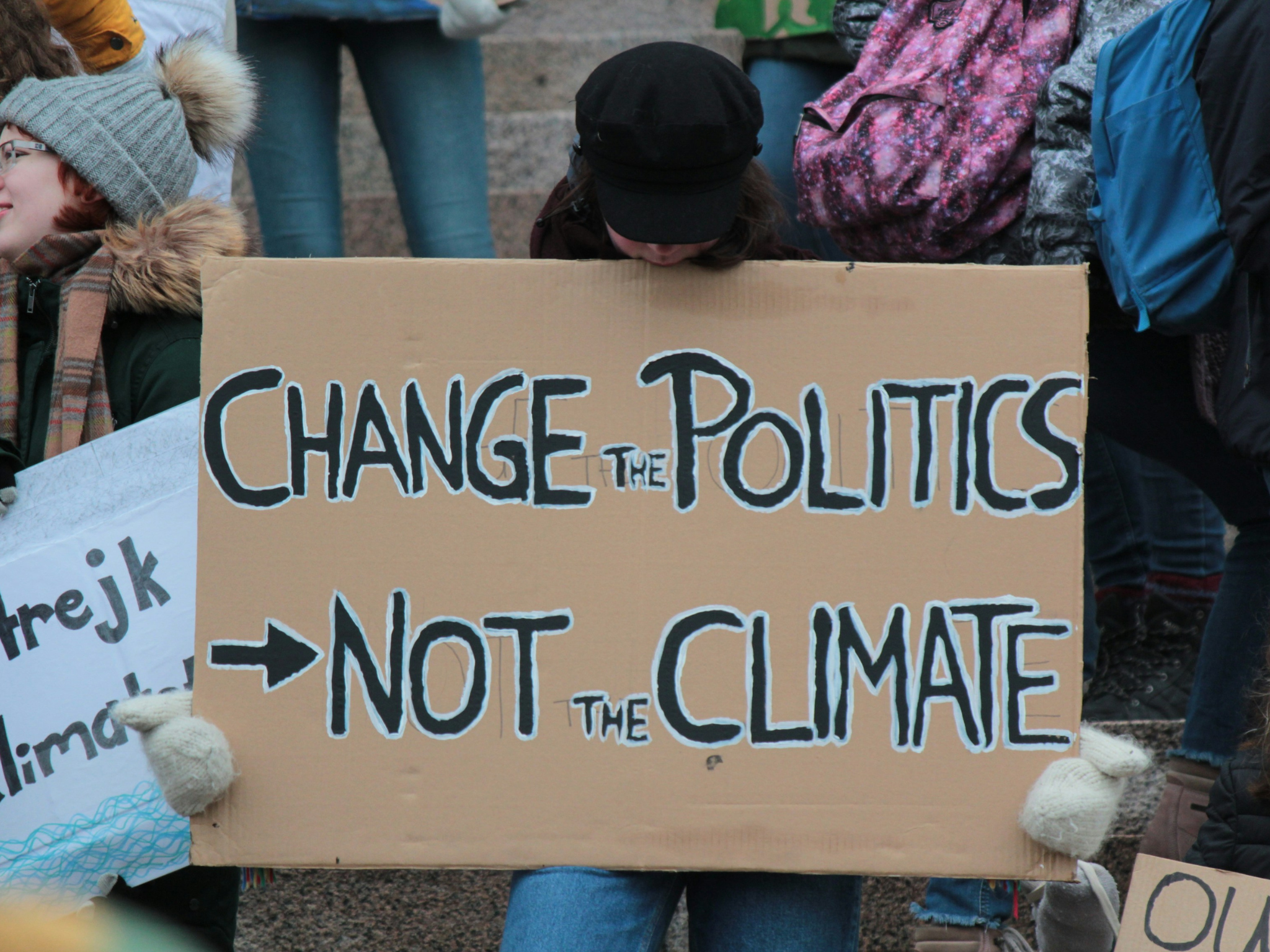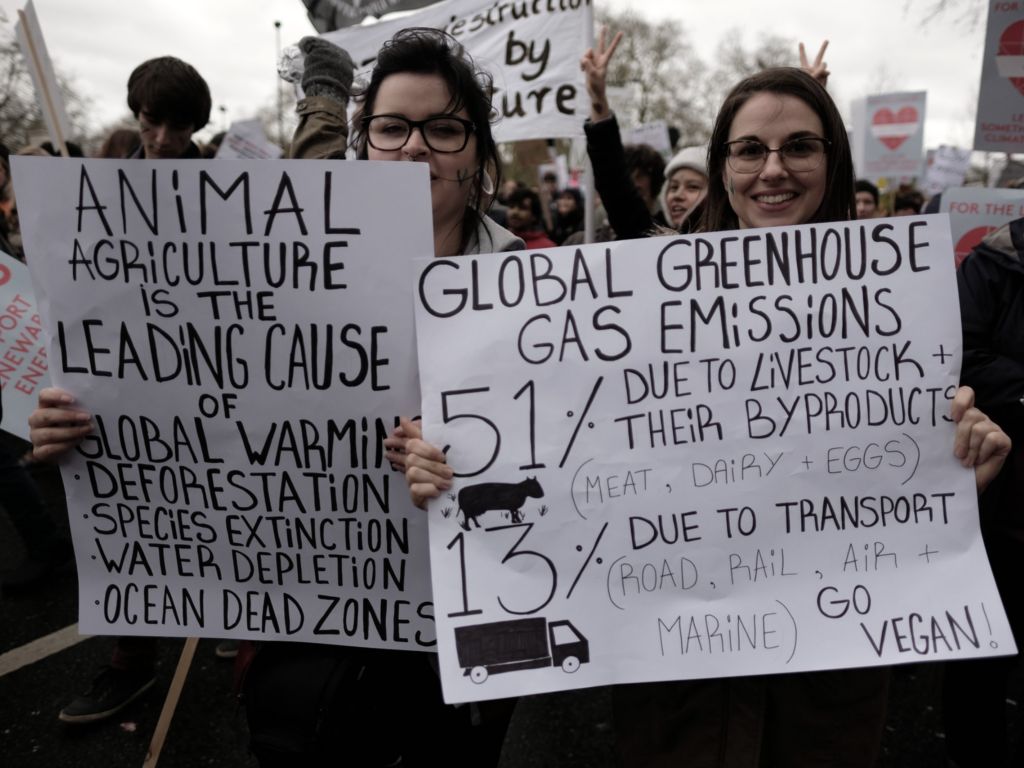
Policymakers vastly underestimate people’s willingness to contribute to the fight against climate change, which can explain their inaction on the crisis, University of Oxford scientists say.
Last year, a global poll of 130,000 participants from 125 countries found that 89% of people want to see more political action to fight the climate crisis. Additionally, 69% said they would give up 1% of their household income every month to support climate action.
But as things stand, global climate policy is shockingly lacking. We’re living in a world where governments are destroying environmental protections and politicians are calling for the scrapping of net-zero policies.
According to a new study by researchers at the University of Oxford, this disregard for climate change could stem from the fact that policymakers don’t think the public cares either.
They asked nearly 200 attendees of the United Nations Environment Assembly (from 53 countries) to estimate the share of the global population willing to part with 1% of their salaries to help fix climate change. On average, these leaders believed only 38% of the public would do so, underestimating the reality by nearly half.
Perceptions of public opinion can inform climate policy decisions

The attendees of the conference last year included politicians, individuals working at the UN, and other multilateral institutions, including at least 24 active policy negotiators.
“It’s not just policymakers,” said lead author Ximeng Fang. “Our findings suggest that individuals playing a diversity of roles at international environmental governance meetings could be operating under the assumption of a weaker public mandate for climate action than reality.”
To illustrate this, the researchers split the sample of respondents into policy and non-policy officials. The former group comprised government and UN representatives and members of the World Bank and other multilateral institutions, who believed that 36% of the population would give 1% of their salary to climate action.
The set of non-policy officials, who included academics, journalists, NGO members and private sector representatives, estimated this share to be 39%. “The results confirm that there are no statistically significant differences in average perceptions between policymakers and non-policymakers,” the study, published in Communications Earth & Environment, noted.
Overall, only 19% of respondents guessed a percentage equal to or higher than the 69% figure. This is despite the delegates being highly environmentally conscious, with 88% suggesting that they’re worried or extremely worried about climate change.
According to co-author Stefania Innocenti, this perception gap could be a driver of political inaction on climate change. “Policymakers’ decisions can be influenced by their perceptions of public opinion. It is possible that their underestimation of how much the public cares about climate change could limit their policy ambitions,” she said.
The gap between the perception and actuality of public support for climate policies is similar among both UN Environment Assembly attendees and the general population – the latter group believes 43% of people would give up 1% of their income for environmental action.
The fact that delegates underestimate global support for the climate fight to a similar extent as the general public, despite having higher personal engagement and greater climate expertise, was noticeable to the researchers, who called it a possible base for future research.
Officials must be ‘braver’ and pursue ‘more ambitious’ climate policies

“There are some plausible explanations for our results, which include the impact of news media and lobbying and the frequency of exposure to individuals with particular ideological viewpoints,” said Innocenti. “While more research is needed before we can say for sure why policymakers underestimate the public on climate change by such a high degree, our results suggest the presence of misperceptions.”
The study stated “multiple factors” that could contribute to the perception gap. “These include a lack of vocal public discussions about climate change; the frequency of exposure to individuals and constituencies with particular ideological viewpoints; how public views are portrayed in news media; and exposure to climate opinion polls,” it said.
“For instance, lobbying, campaign contributions, and media influence have been shown to skew perceptions of policy actors, making them less able to accurately estimate public preferences. Similarly, recent evidence finds that citizens who publicly engage with local development projects tend to be highly unrepresentative of the broader population.”
A perceived lack of progress towards carbon neutrality may also have led delegates to underestimate the public’s willingness to incur personal costs to address climate change.
A recent report from the Tony Blair Institute suggests that the UK public is losing faith in government climate policies. “Though most people will accept that climate change is a reality caused by human activity, they’re turning away from the politics of the issue because they believe the proposed solutions are not founded on good policy,” the former prime minister wrote.
The University of Oxford study comes months before delegates head to another UN climate event, COP30 in Brazil, which is already facing controversy. Meat lobbyists have been advocating for the use of a bogus methane reporting tool in Brazil, Argentina, Paraguay and Uruguay, which will jointly negotiate agricultural issues at COP30.
“I hope our research encourages policy officials to be braver and pursue more ambitious climate policies,” said study co-author Joshua Ettinger. “They have more public support than they may realise.”
The post Study: Politicians Undestimate Public Support for Climate Action & Must Be ‘Braver’ appeared first on Green Queen.
This post was originally published on Green Queen.